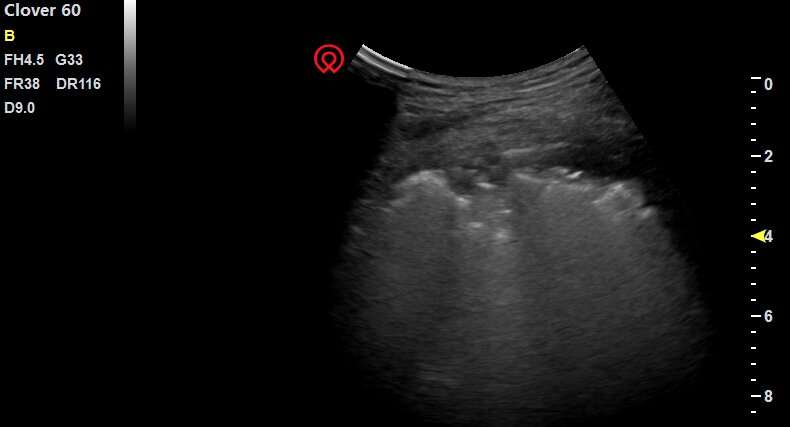
Health professionals will be able to quickly upgrade their skills to perform lung ultrasound scans to diagnose COVID-19 accurately and safely, with a new online course being made available free by the University of Melbourne.
The COVID-19 Lung Ultrasound course, developed by the University’s Melbourne Medical School Ultrasound Education Group and Mobile Learning Unit, is aimed at medical, nursing and paramedical staff involved in assessing the lungs as part of clinical care.
University of Melbourne cardiothoracic surgeon and course director Alistair Royse said being able to perform bedside lung ultrasounds would make a significant difference to the speed of clinical decision making.
“COVID-19 patients can sometimes become critically ill within a matter of hours. The ultrasound is able to identify subtle early changes and this would allow early interventions to be started,” Professor Royse said.
“This information can assist decisions on therapies such as steroids and antivirals at an earlier stage of the disease where interventions may potentially have a larger impact on outcomes.
“And as the experience in Italy and elsewhere has shown, seemingly small things, like how a patient is positioned, can make a major difference—whether they are in the prone position or lying on their back during ventilation.”
Professor Royse said lung ultrasound could be used more frequently and conveniently than some forms of imaging such as CT scanning.
“Performing a CT scan is a large logistical exercise when you have a patient who is seriously ill, because it requires moving them form one part of a hospital to another, whilst still observing all of the infection control measures and maintaining their ventilator and drug infusions,” Professor Royse said.
“A lung ultrasound can be done within minutes. It is superior to a physical examination with stethoscope—which is why we’re recommending this training for GPs as well—and it is more sensitive than a plain chest X-ray.”
Participants will learn how to perform a lung ultrasound, learn the implications of specific ultrasound findings in COVIC-19, and learn how to use an ultrasound encased in a plastic sheath, for tighter infection control. The rapid-fire course takes about 30 hours and includes simulation exercises.
University of Melbourne Dean of the Faculty of Medicine, Dentistry and Health Sciences and Assistant Vice-Chancellor for Health Shitij Kapur, said the unit’s experience in delivering mobile education for clinicians had stood it in good stead for getting this course ready.
“Lung Ultrasound is an increasingly critical tool in the COVID crisis. It’s easy to perform, non-invasive and can be performed by the patient bedside. It’s an ideal skill set for a healthcare team,” Professor Kapur said.
“I’m very proud of the efforts of the team and our clinical experts to get these vital pandemic resources up and running so that they can be of maximum use. Our hope is that we will be able to make a difference to patient quality of life and recovery.”
Source: Read Full Article
